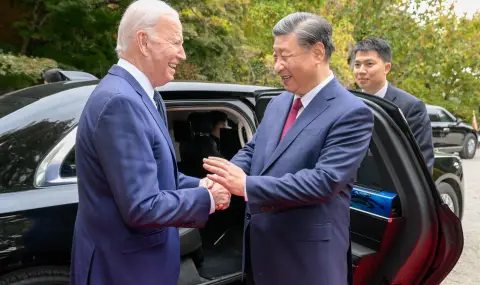Many countries in the Global South feel underrepresented in the Organization of the United Nations, feel that their voice is not being heard, and that the West does not sufficiently respect their need to develop. And it is precisely from this feeling that China benefits, which presents itself as an alternative to the model dominated by the West, writes ARD. An alternative for which the right to development is a priority and universal human rights - such as personal freedom - are rather relative. But how well does Beijing sell this idea?
A model built together with Putin
This model for an alternative world order was born in partnership and “boundless friendship” with Russian President Vladimir Putin, writes the correspondent of the German public-law media Marie von Mallinckroth. In a joint statement two years ago, they spoke of the need to change the world order. And they stated that the Western powers are “interfering in the internal affairs of other countries, violating their legitimate rights and interests and hindering the development and progress of humanity regardless of the opposition of the international community”. China understands “true multilateralism” by not interfering in the affairs of other countries with which bilateral relations are maintained under the umbrella of various organizations.
At the same time, the Chinese leadership is building parallel structures to spread the message that the country offers a better model of the world order, the ARD text says. In his speeches, Xi Jinping intertwined “the common destiny of mankind“ and the onset of a “new era” with criticism of the West. One of the forums where he spread this mantra was the latest summit of the Forum on China-Africa Cooperation, for which some 50 African heads of state and government arrived in Beijing in early September.
Global Development Initiative - The Pride of China
Among the influence structures in question is the “One Belt, One Road“ and the BRICS association, within which China partners with Brazil, Russia, India and South Africa, and more recently with other countries. These include the Asian Infrastructure Investment Bank and the Global Security Initiative, which is part of the Global Development Initiative.
Shortly before the UN summit in New York, the Chinese Foreign Ministry again recalled the success of the initiative in question, which was supported by about 100 countries and institutions. The aim of the initiative was to enforce the “right to development”, explains Wang Wen of Zhenmin University in Beijing. "The Global Development Initiative wants to reach a consensus on the common values of all countries and integrate them with each other as much as possible," Wang added in an interview. Before the UN, China outlined its views on universal human rights as follows: “There is no universal model for the promotion and protection of human rights”. According to the rulers in Beijing, it is necessary that “the principle of universality of human rights be adapted to national conditions and traditional culture”.
The West must change its approach, but China also has a long way to go
The Chinese strategy has been somewhat successful, says Michael Bröning from the “Friedrich Ebert“ foundation. Because the Global South perceives China as an ally in terms of economic development. Rather, the role of the People's Republic is perceived as constructive and legitimate, even when the country strongly defends its own interests. A German foundation study concludes that to compete with China, the West needs to improve its approach to developing countries, whose need to be seen as equal partners is not being met.
The Chinese approach, which ultimately aims to supplant the US as the world's leading power, appeals to the leaders of many countries. One of them is Brazil's left-wing president Luiz Inácio Lula da Silva and his government. China is the country's most important trading partner, with nearly a third of its exports going to China. Da Silva's goal is to be perceived as a Great Power politician, says Mauricio Santoro of the State University of Rio de Janeiro. For this purpose, he wants, together with the BRICS countries, to build a world order in which the West is no longer so important.
And while China's voice is now being heard more loudly on the international stage, China still has a long way to go before it can dominate the world stage. After all, heads of state from all over the world continue to meet in New York, not in China, emphasizes Michael Bröning.
Author: Marie von Mallinckroth ARD
